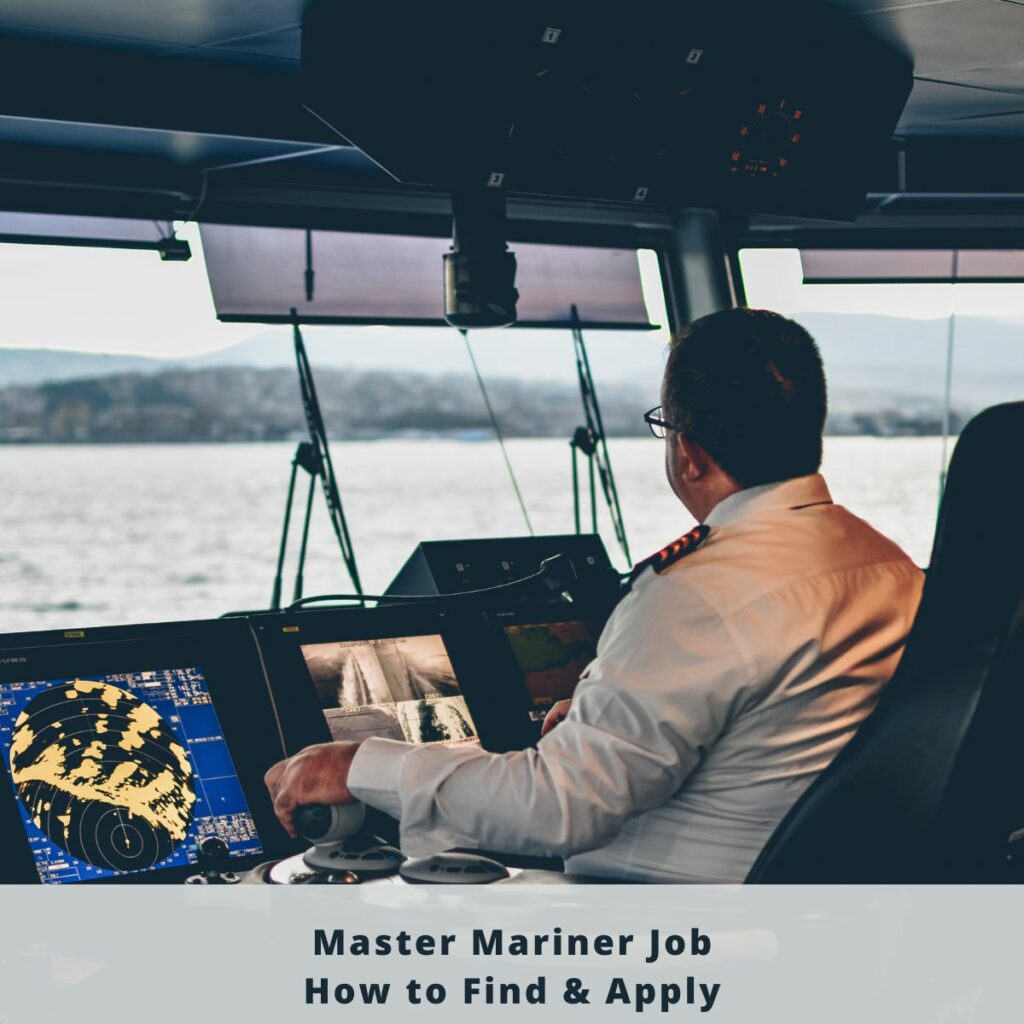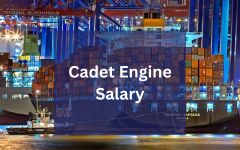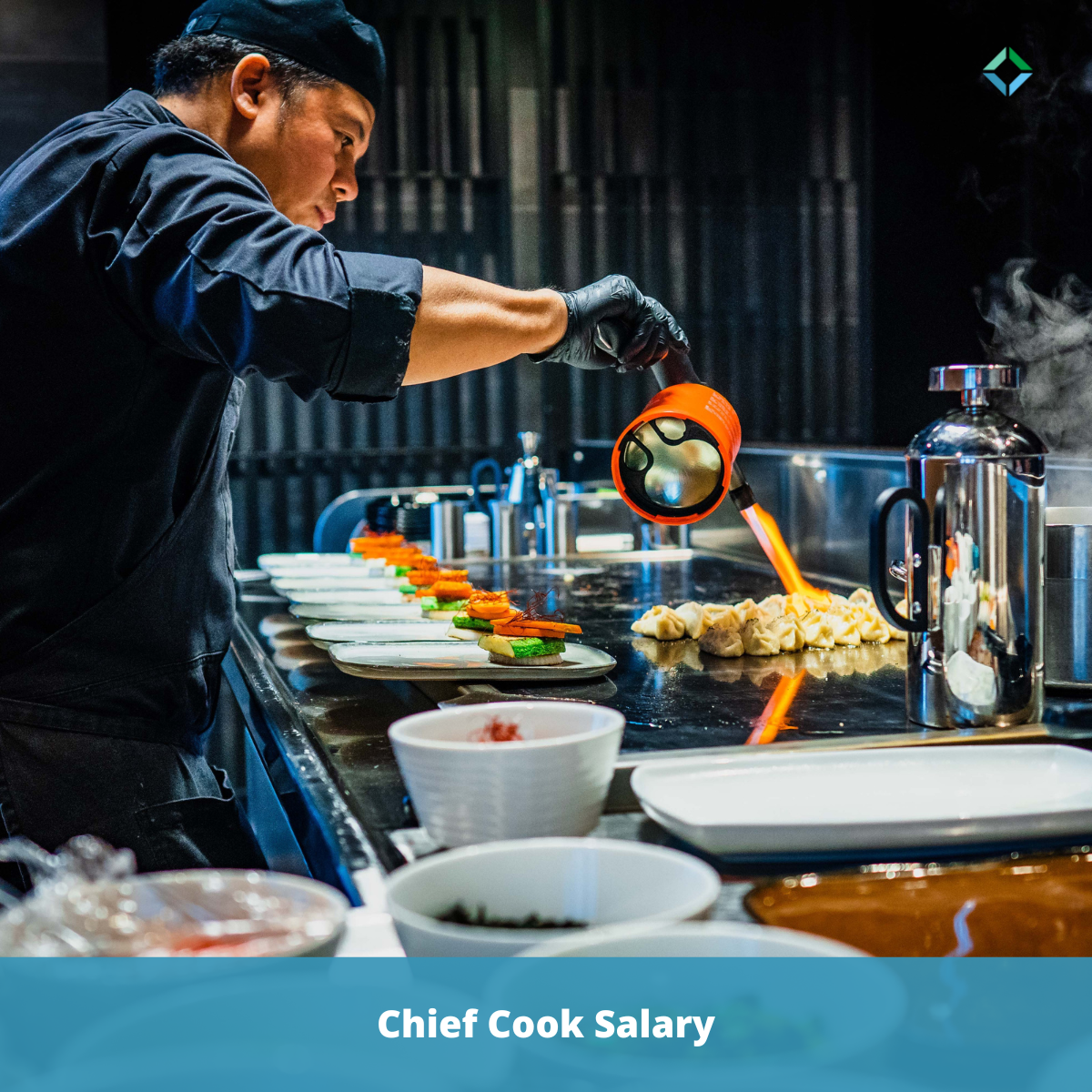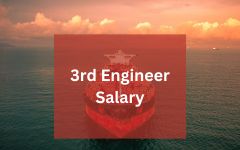Master Mariner Job in Maritime Industry: How to Find One and Apply
The maritime industry is an exciting field that offers numerous career opportunities for professionals who love the sea. A master mariner job is one of the most prestigious roles in the maritime industry, and it requires years of experience and qualifications. If you're interested in a career as a master mariner, this article will guide you through the process of finding and applying for a job in the maritime industry.
What is a Master Mariner?
A master mariner is an accomplished and highly skilled professional in the maritime industry who has attained the highest level of certification and experience in ship operations and management. The master mariner job is one of the most prestigious and respected roles in the maritime industry, and it requires years of hard work, dedication, and specialized training.
A master mariner is a licensed captain who has successfully completed the necessary education, training, and certification requirements set forth by the International Maritime Organization (IMO) and the relevant flag state authority. To become a master mariner, one must have a deep understanding of the principles of navigation, ship stability, maritime law, safety regulations, and the latest technology used in the industry.
The master mariner job is a critical role in the maritime industry, responsible for ensuring the safety of the ship, its cargo, and its crew. The master mariner is in charge of navigating the vessel and making decisions regarding the operation of the ship. They must have an in-depth understanding of the sea, the weather, and the ship's capabilities, as well as the regulations governing the industry.

In addition to managing the ship's operations, a master mariner is also responsible for managing the ship's crew. They must have excellent leadership and communication skills to ensure that the crew is well trained, motivated, and working effectively. They must be able to work well under pressure and make quick decisions during emergencies.
The role of a master mariner is varied and challenging, and it requires a high level of technical knowledge, problem-solving skills, and attention to detail. The master mariner job can be found on various types of ships, including cargo ships, tankers, container ships, passenger vessels, and more.
The demand for master mariners is high in the maritime industry, and there are many opportunities to work in this field. However, finding a master mariner job can be a challenging task, especially for those who are new to the industry. To find a master mariner job, one can search for sea jobs on online job boards, contact manning/recruitment agencies, or network with industry professionals.
How to Find a Master Mariner Job
Finding a master mariner job in the maritime industry can be a challenging task, but with the right approach and resources, it is possible to secure your dream sea job. Here are some tips to help you find a master mariner job:
- Utilize Online Job Boards: One of the best ways to find master mariner jobs is by utilizing online job boards that specialize in the maritime industry. These job boards have thousands of job openings, and you can search for master mariner jobs using specific keywords like "master mariner job" or "sea jobs." At Vesseljoin you can find jobs for seafarers or other master mariners to become friends with. You can find jobs, apply, become friends with other seafarers and connect with shipping companies. All you need in one platform!
- Contact Recruitment/Manning Agencies: Recruitment agencies can be an excellent resource for finding master mariner jobs. These agencies have contacts with shipping companies and can help you find the right job that fits your skills and qualifications.
- Network with Industry Professionals: Networking is an essential tool for finding master mariner jobs. Attend maritime industry events, conferences, and seminars and meet with other industry professionals. These events provide an opportunity to connect with people in the industry and learn about job openings. For example, you can use Vesseljoin (a social media platform for seafarers) where you can find thousands of master mariners to become friends with.
- Check Company Websites: Many shipping companies post job openings on their websites. Visit company websites and check for job openings in the career section. You can also sign up for job alerts to receive notifications when new job openings are available.
- Use Social Media: Social media platforms like Vesseljoin or LinkedIn can be a powerful tool for finding master mariner jobs. Create a professional profile that highlights your skills and experience and connect with industry professionals. You can also join industry-specific groups and participate in discussions to learn about job openings.
- Consider Working for Maritime Agencies: Maritime agencies such as the United States Coast Guard or National Oceanic and Atmospheric Administration (NOAA) often have job openings for master mariners. Check their websites or reach out to their recruitment teams to learn more about these opportunities.
- Apply to Shipping Companies Directly: Finally, consider applying to shipping companies directly. Research companies that operate in your area of interest and submit your resume and cover letter to their human resources department. Follow up with a phone call or email to inquire about available job openings.
Qualifications and Skills Required to Become a Master Mariner
Becoming a master mariner requires a significant amount of education, certification, and experience. The following are some of the qualifications and skills required to become a master mariner:
- Education and Certification Requirements: To become a master mariner, you will need to have completed a degree in marine science or a related field, and also obtain certification from a recognized maritime authority such as the International Maritime Organization (IMO) or the United States Coast Guard. Some of the key courses that you will need to take during your education include navigation, seamanship, maritime law, and marine engineering.
- Technical Knowledge and Expertise: Master Mariners must have an in-depth understanding of the technical aspects of ship operations, including the use of navigation equipment, radar, communication systems, and engine controls. They must be familiar with the latest regulations and standards set by maritime authorities, and be able to apply this knowledge to ensure that the ship is in compliance with the relevant laws and regulations.
- Leadership and Communication Skills: Master mariners are responsible for managing the crew and ensuring that the ship operates safely and efficiently. As such, they must possess strong leadership and communication skills. They must be able to clearly communicate instructions to their crew, delegate tasks effectively, and resolve conflicts in a professional manner.
- Problem-Solving Abilities: Master Mariners must be able to think critically and solve problems quickly and efficiently. They must be able to identify potential issues and take proactive steps to address them. This requires a high level of technical knowledge, as well as the ability to work well under pressure.
- Physical Fitness: Master Mariners must also be physically fit and able to perform their duties on board the ship. This includes being able to climb ladders, lift heavy objects, and withstand the rigors of the sea.
Types of Ships That Hire Master Mariners
Master Mariners are responsible for managing the operations of ships and ensuring that they operate safely and efficiently. As such, they are in high demand in the maritime industry and are hired to work on a wide range of ships, including cargo ships, tankers, container ships, passenger vessels, and others.
- Cargo Ships: Cargo ships are designed to transport large quantities of goods, materials, or products. Master Mariners working on cargo ships are responsible for managing the loading and unloading of cargo, ensuring that it is properly secured, and maintaining accurate records of the cargo on board. They must also manage the ship's navigation and communication systems to ensure safe passage.
- Tankers: Tankers are used to transport liquids such as oil, gas, and chemicals. Master Mariners working on tankers are responsible for ensuring that the cargo is properly loaded and unloaded, and that it is transported safely and securely. They must also be aware of the potential hazards associated with transporting hazardous materials, and take appropriate precautions to mitigate any risks.
- Container Ships: Container ships are designed to transport large quantities of goods in standardized shipping containers. Master Mariners working on container ships are responsible for managing the loading and unloading of containers, ensuring that they are properly secured, and maintaining accurate records of the cargo on board. They must also manage the ship's navigation and communication systems to ensure safe passage.
- Passenger Vessels: Passenger vessels are used to transport people from one location to another. These ships can range from small ferries to large cruise ships. Master Mariners working on passenger vessels are responsible for managing the ship's operations and ensuring the safety and comfort of passengers. They must also be aware of the regulations and standards set by maritime authorities for passenger vessels.
- Others: In addition to the above-mentioned types of ships, Master Mariners may also work on research vessels, tugboats, offshore supply vessels, and other types of specialized vessels. These ships require specialized skills and knowledge, and Master Mariners working on them must be able to adapt to different operating environments and conditions.
Challenges of Finding a Master Mariner Job
Usually, finding a master mariner job or in general jobs for the higher ranks in the maritime industry is relatively easy. So experienced master mariners can easily get their next contract.
However, as with any profession, finding a Master Mariner job in the maritime industry could be challenging if it's the first time. In addition, there are several challenges that can make the job search process difficult for Master Mariners.
- Geographic limitations: The location of available Master Mariner jobs can also be a challenge. Many jobs may be located in remote or offshore areas, which can be difficult to access and may require long periods of time away from home. This can be a significant barrier for those with family or other personal commitments.
- Required experience: Many Master Mariner jobs require significant experience working on ships. This can be a challenge for new graduates or those who have recently obtained their Master Mariner certification. In addition, many companies require specific experience working on certain types of vessels, which can further limit sea job opportunities.
- Language barriers: The maritime industry is international in nature, and many Master Mariner jobs require fluency in multiple languages. This can be a challenge for those who are not fluent in the required languages, and may limit job opportunities for those who only speak one language.
- Regulatory requirements: The maritime industry is highly regulated, and Master Mariners are required to meet certain standards and regulations in order to work on ships. This includes obtaining specific certifications and licenses, and meeting certain physical and medical requirements. These regulations can limit job opportunities for those who do not meet the required standards.
- Industry volatility: The maritime industry can be volatile and subject to economic and geopolitical factors. This can result in fluctuations in the demand for Master Mariners, and can make it difficult to predict job opportunities in the future.
Despite these challenges, there are several steps that Master Mariners can take to increase their chances of finding a job in the maritime industry. This includes networking with industry professionals, obtaining additional certifications and training, and being flexible with regards to job location and type of vessel. It is also important to stay up-to-date with industry developments and trends in order to stay competitive in the job market.
Vesseljoin for example is the first professional social media platform for seafarers. You can easily find thousands of master mariners to become friends with, exchange messages, and learn all you need to know from your future colleagues.
How to Apply for a Master Mariner Job
Once a Master Mariner has identified potential job opportunities in the maritime industry, the next step is to apply for the position. Here are some tips on how to apply for a Master Mariner job:
- Review job postings: Start by reviewing job postings on job boards, industry websites, and company websites. Look for positions that match your qualifications and experience. It is important to carefully review the job requirements and responsibilities to ensure that you are a good fit for the position.
- Prepare your application materials: Once you have identified a position that interests you, prepare your application materials. This typically includes a cover letter and resume, as well as any additional documents or certifications required by the employer. It is important to tailor your application materials to the specific job posting and highlight your relevant experience and qualifications.
- Submit your application: Once your application materials are ready, submit them to the employer. This may be done through an online application system, email, or mail. Make sure to follow any specific instructions provided by the employer and to submit your application by the stated deadline.
- Follow up: After submitting your application, it is a good idea to follow up with the employer to confirm receipt of your application and to express your continued interest in the position. This can be done via email or phone, and can help to keep you top of mind for the employer.
- Prepare for interviews: If your application is successful, you may be invited for an interview. Prepare for the interview by researching the company and the job responsibilities, and by practicing your responses to common interview questions. It is also a good idea to prepare questions to ask the employer about the position and the company.
- Negotiate salary and benefits: If you are offered the position, it is important to negotiate your salary and benefits. Research industry standards and comparable positions to determine a fair salary range, and be prepared to discuss your expectations with the employer. It is also important to carefully review any benefits packages offered, including health insurance, retirement plans, and vacation time.
- Accept or decline the offer: After negotiating salary and benefits, it is time to make a decision on whether to accept or decline the job offer. If you decide to accept, make sure to confirm any details with the employer and to sign any necessary employment contracts or agreements.






